Outrage as more horses being smuggled out of the UK are intercepted a year after we rescued 26 from similar circumstances
Smuggled horses discovered once again despite Animal Welfare (Livestock Exports) Act 2024
Posted on 06/02/2025
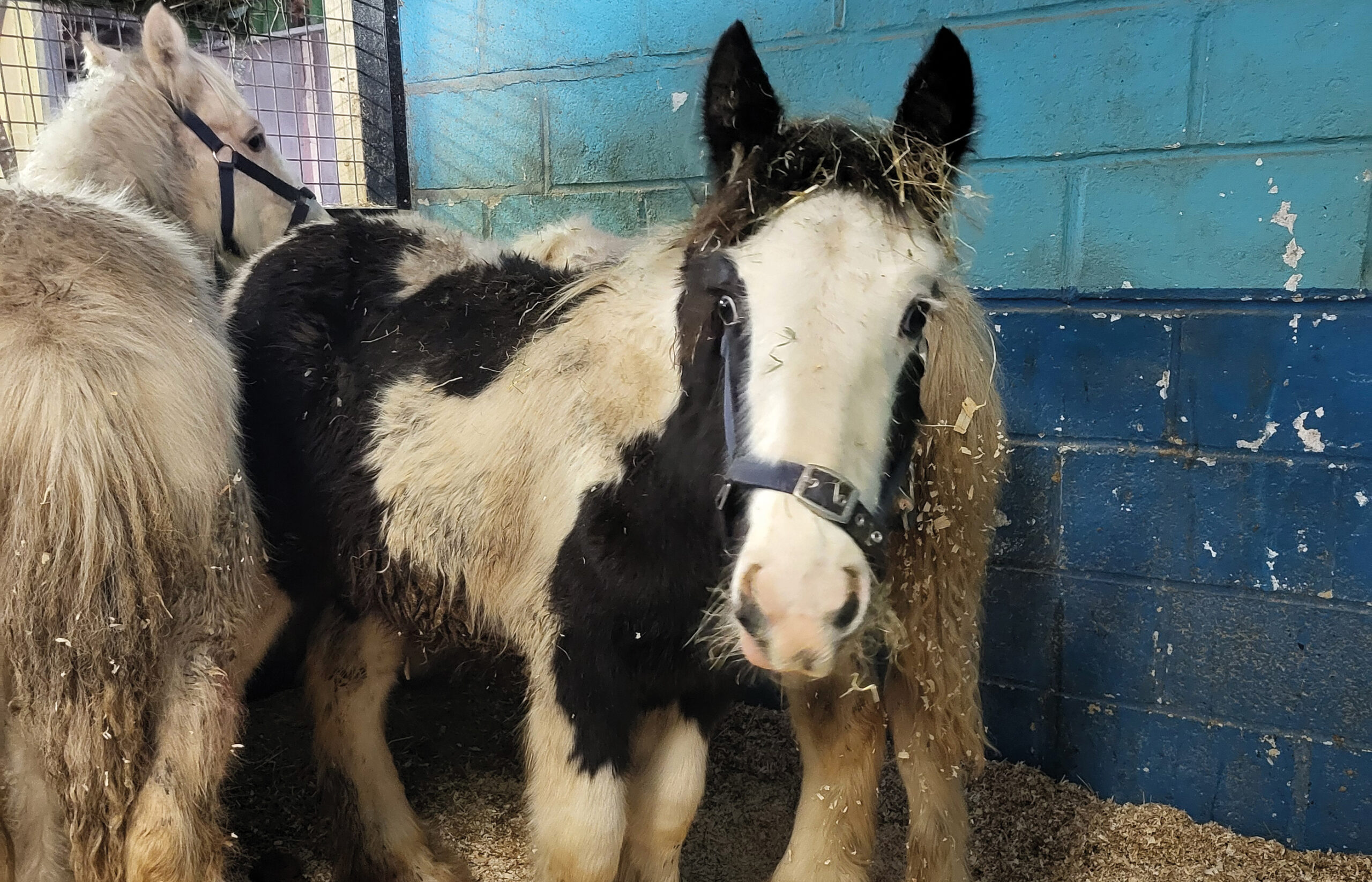
A year after we rescued 26 horses being fraudulently transported out of the UK, another 20 have been found travelling on an illegal transport in horrific conditions.
Like the ‘Dover 26’, we suspect some of the horses were being smuggled for fattening and slaughter despite the ban on live exports in May 2024.
Those on board included Irish Thoroughbreds, Connemaras and leisure ponies – alongside animals that were being moved legitimately.
Many of the horses were too sick and weak to travel, yet had been crammed into an unsuitable lorry where one foal was on the floor and unable to get back on its feet.
Dover port officials were alerted to the transporter and upon inspection discovered the ‘downed’ foal, resulting in the lorry being redirected to a holding yard where the true horror of the ordeal was uncovered.
World Horse Welfare Field Officer Rebecca Carter said:
“At the holding facility I was faced with a heart-breaking scene. The equines were so still and quiet and appeared shell-shocked from their ordeal. A number of the horses were underweight and had strangles, a highly contagious bacterial and potentially fatal infection – with the infected horses suffering from painful abscesses and fever. Two also had pneumonia, and some were suffering from skin conditions and various other health issues.
“There were three unhandled foals who were matted with faeces as nobody could get hold of them to clean them up. They were completely terrified and when I approached them, they buried their heads into each other and huddled together in a corner of the stable.
“Overall, it was an incredibly sad sight to see this very mixed group of horses, some of which were fully clipped and shod, so previously well cared for, now looking bewildered, poor and depressed, with vacant expressions.”
At the time of their transportation from Ireland, across Great Britain towards mainland Europe, the UK and Ireland were experiencing extremely stormy conditions, further adding to the suffering of those on board.
Following health and welfare assessments five of the Irish Thoroughbreds sadly had to be euthanised.
Rebecca added:
“It’s not just the health of these horses which was put at risk, there’s a bigger issue here in that these horses were carrying highly contagious diseases and therefore a biosecurity threat to all those they came in contact with.”
Alongside the care shown by the team at the holding yard, the charity Retraining of Racehorses (RoR) have assisted us in providing support and funds to cover the costs associated with the two surviving Irish Thoroughbreds.
Philippa Gilmore, Head of Welfare Operations at Retraining of Racehorses, said:
“We were deeply saddened by this case and that the live transportation of horses to slaughter continues despite the recent change to the law. Thanks to our excellent working relationship with World Horse Welfare, we were able to step in and provide financial support for the two surviving Irish Thoroughbreds, ensuring they could receive care at World Horse Welfare’s exceptional facilities. We look forward to these horses receiving the proper support they deserve and finding loving homes in the near future.”
Seven of the twenty horses, which were in better health, were claimed by their owners.
The remaining eight were abandoned – including a pregnant mare and the terrified foals.
These were signed over by the authorities and following a period of quarantine, were taken to our Hall Farm Rescue and Rehoming Centre in Norfolk.
All are receiving appropriate care and medical treatment with a view to our teams finding safe and loving homes for them in the future.
World Horse Welfare Chief Executive Roly Owers said:
“We applaud the Animal and Plant Health Agency (APHA) for stopping the transporter in the first instance and ensuring the horses were taken to a safe holding yard. Thanks to their quick actions these horses were relieved from their horrendous journey and given the care they desperately needed.
“We always knew that the passing of the Animal Welfare (Live Exports) Act 2024, whilst a huge step forward, was never going to work in isolation. Nevertheless, it is shocking to have been involved in another high-profile rescue of equines at Dover, many of whom were very likely being exported for slaughter.
“We make no apology for sounding like a broken record, and pretty much on the 12th anniversary of the horsemeat scandal, without a proper, robust digital equine identification and traceability system in the UK and across Europe, the welfare of equines being transported will never be fully protected. We believe that horses are regularly being transported out of the UK illegally and until such a system is in place, horses will continue to be exploited for profit.”
Much like the Dover 26, our charity will foot the bill for the upkeep and treatment of the horses transferred into our care and continue its work to protect the welfare of all equines, regardless of their role in society.
You can help us today with a donation to the ‘Trafficked 20’ appeal.
On average it costs over £7,000 a year to provide the appropriate care and veterinary treatment for one horse.
Topics
Related News
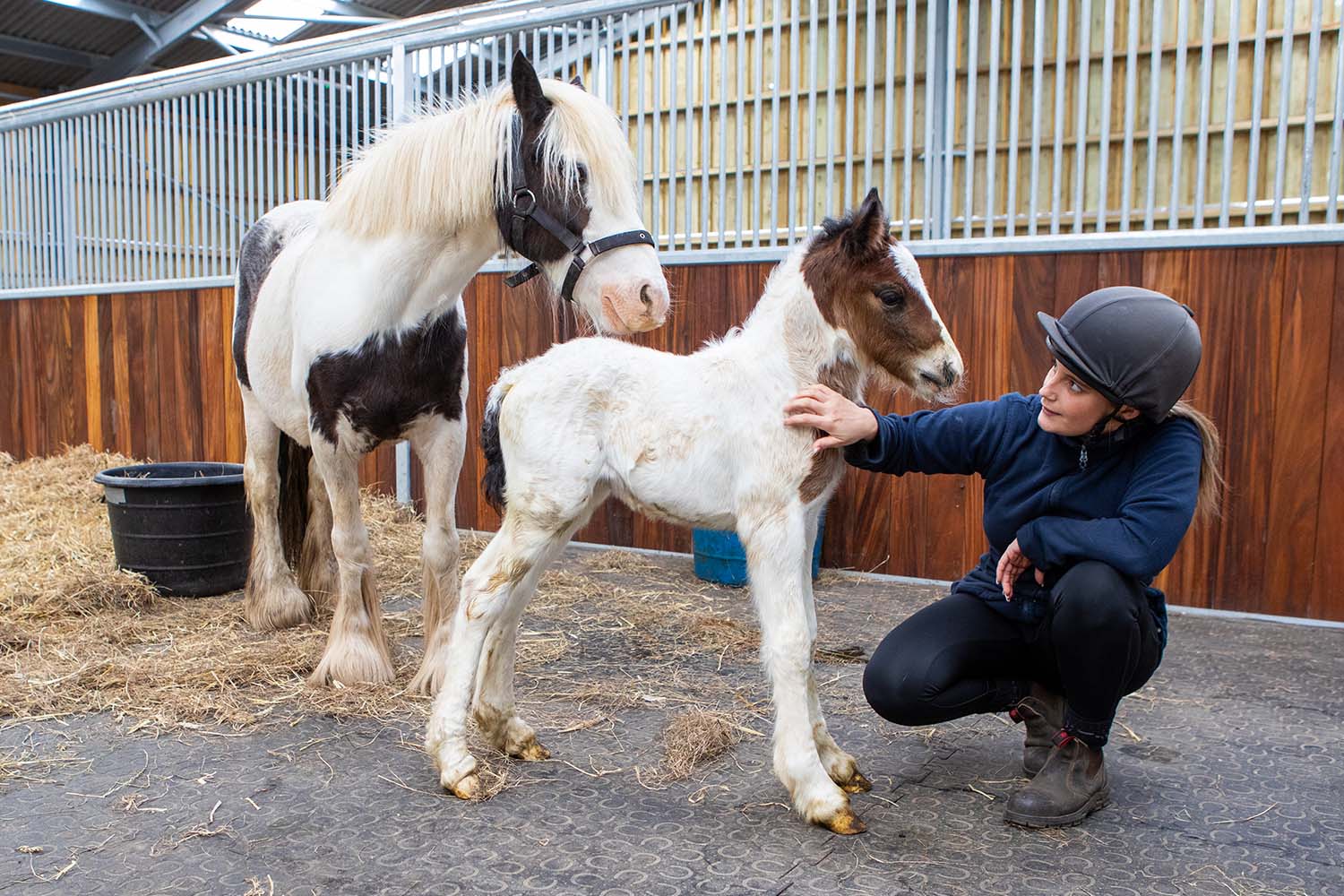
Birth of first foal from rescued ‘smuggled’ Dover 26 horses
A new beginning at Hall Farm as rescued mare Daisy welcomes foal, Pompey
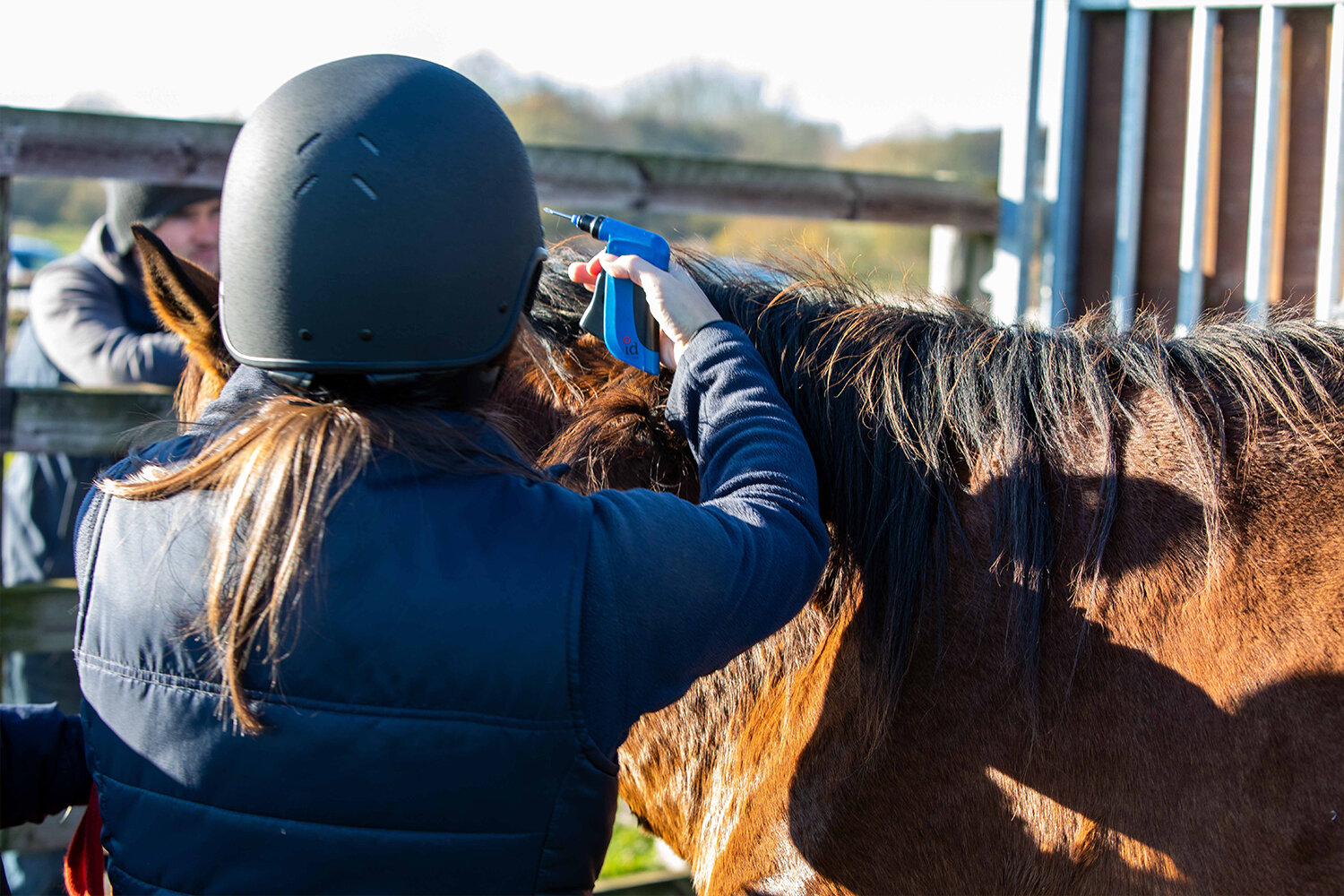
Consultation on equine ID shake up is of ‘pivotal importance’
Welcoming DEFRA’s consultation to seek the public’s views on the UK Government's proposals for improving equine identification and traceability in England.
Recommended Blog Posts
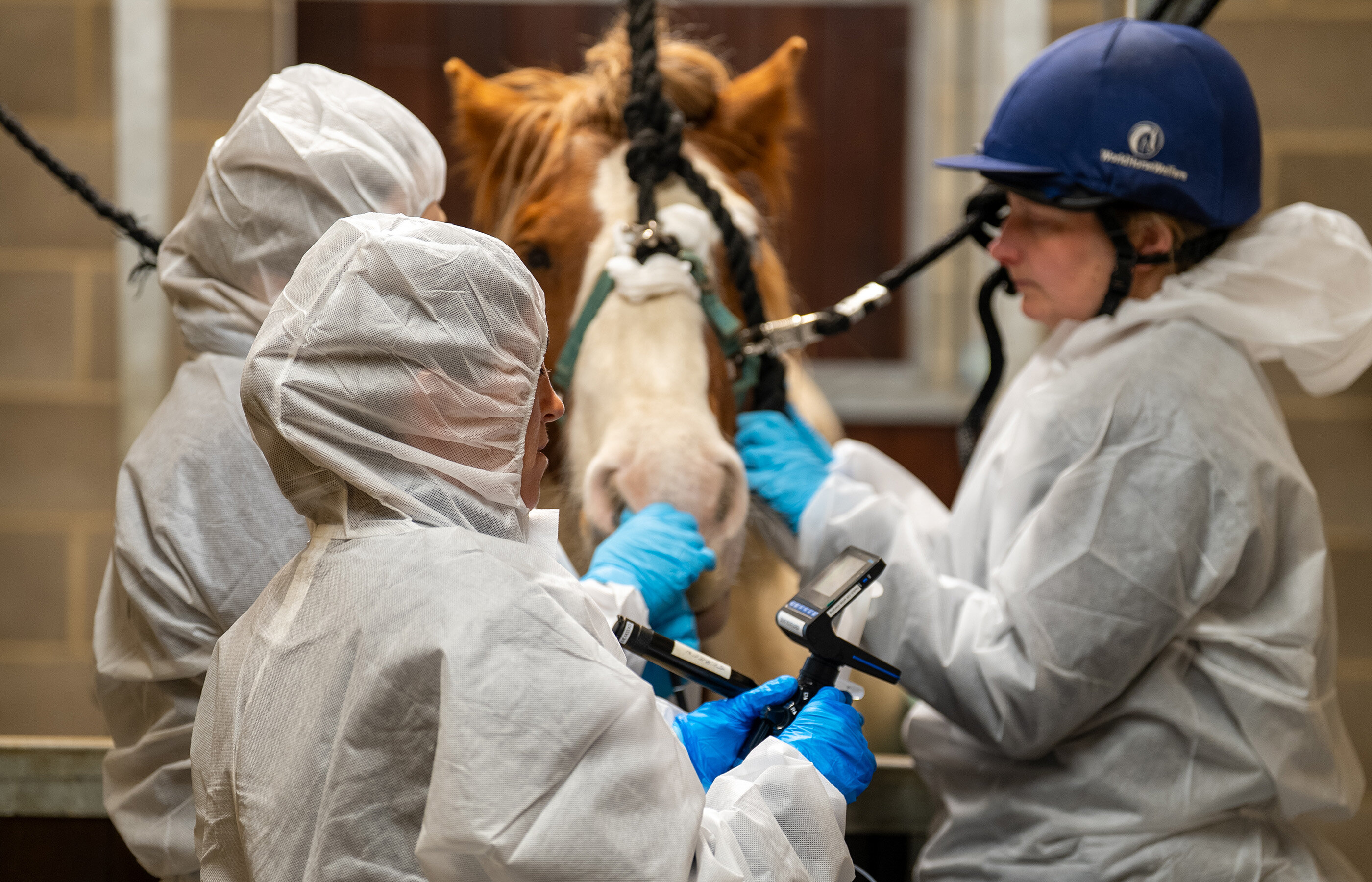
Strangles can be stubborn. But so are we!
How we’re treating horses and clearing carriers of the disease at Hall Farm.
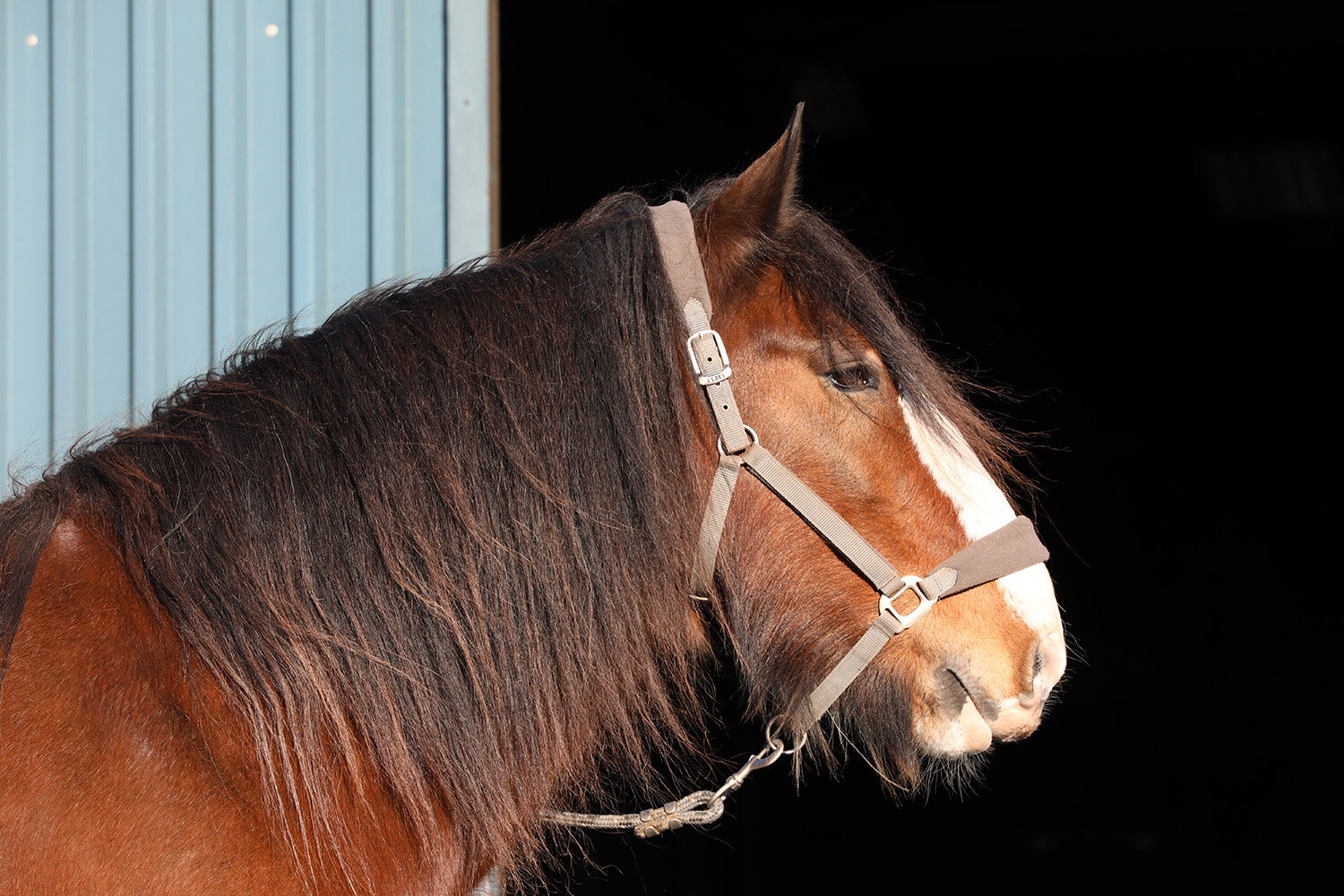
We catch up with gentle giant Seamus in his new home
Rehomer Nikky tells us what life is like with Clydesdale Seamus and how he is settling in with his new companion Puddin.
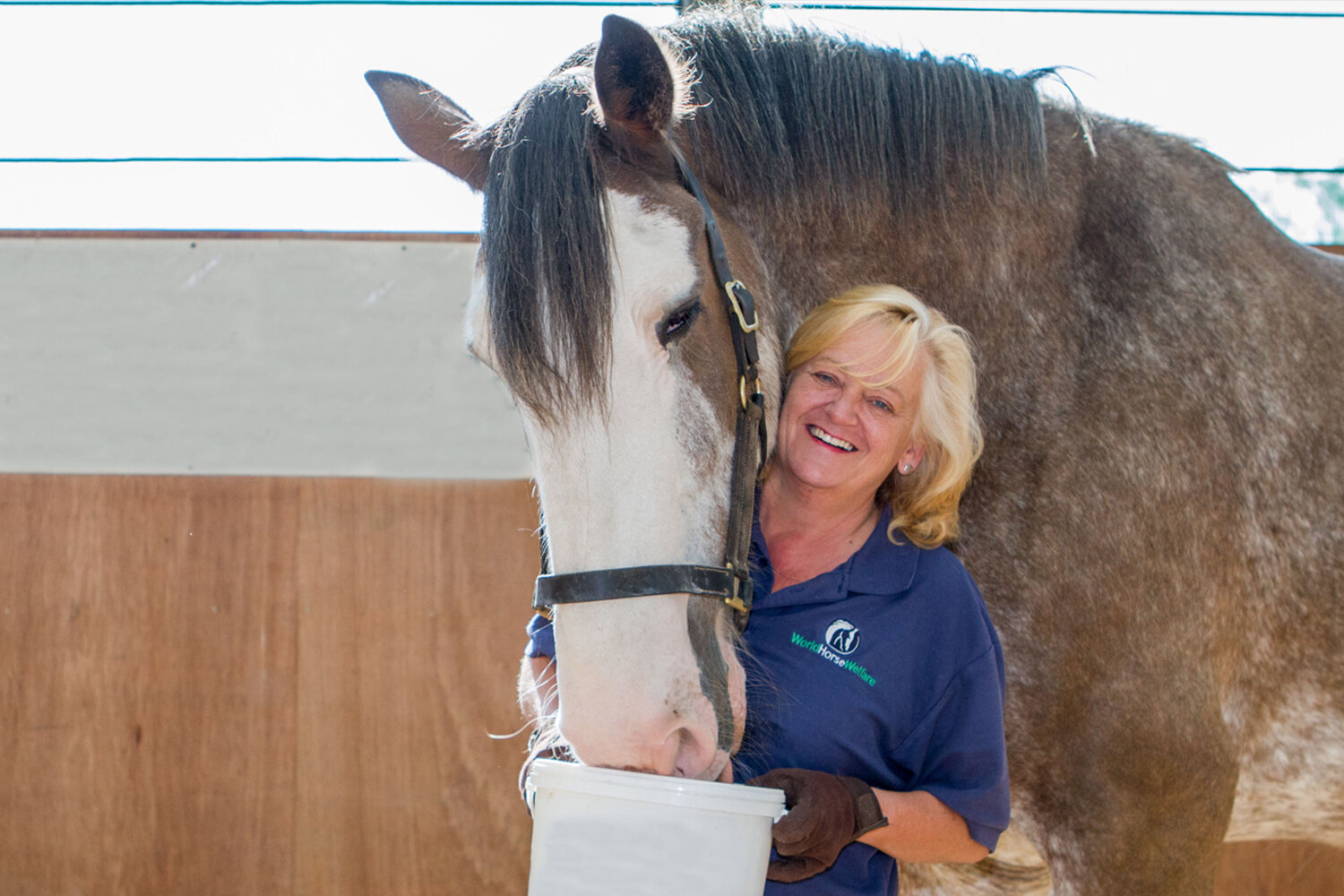
We find out the latest news on Equine Grass Sickness
Belwade Farm Rescue and Rehoming Centre Manager Eileen Gillen shares insights from a conference on the complex disease.
Enjoy reading stories like this?
Join over 65,000 other horse lovers and sign up for our email newsletter

Join over 65,000 other horse lovers and sign up for our email newsletter
Sign me up now